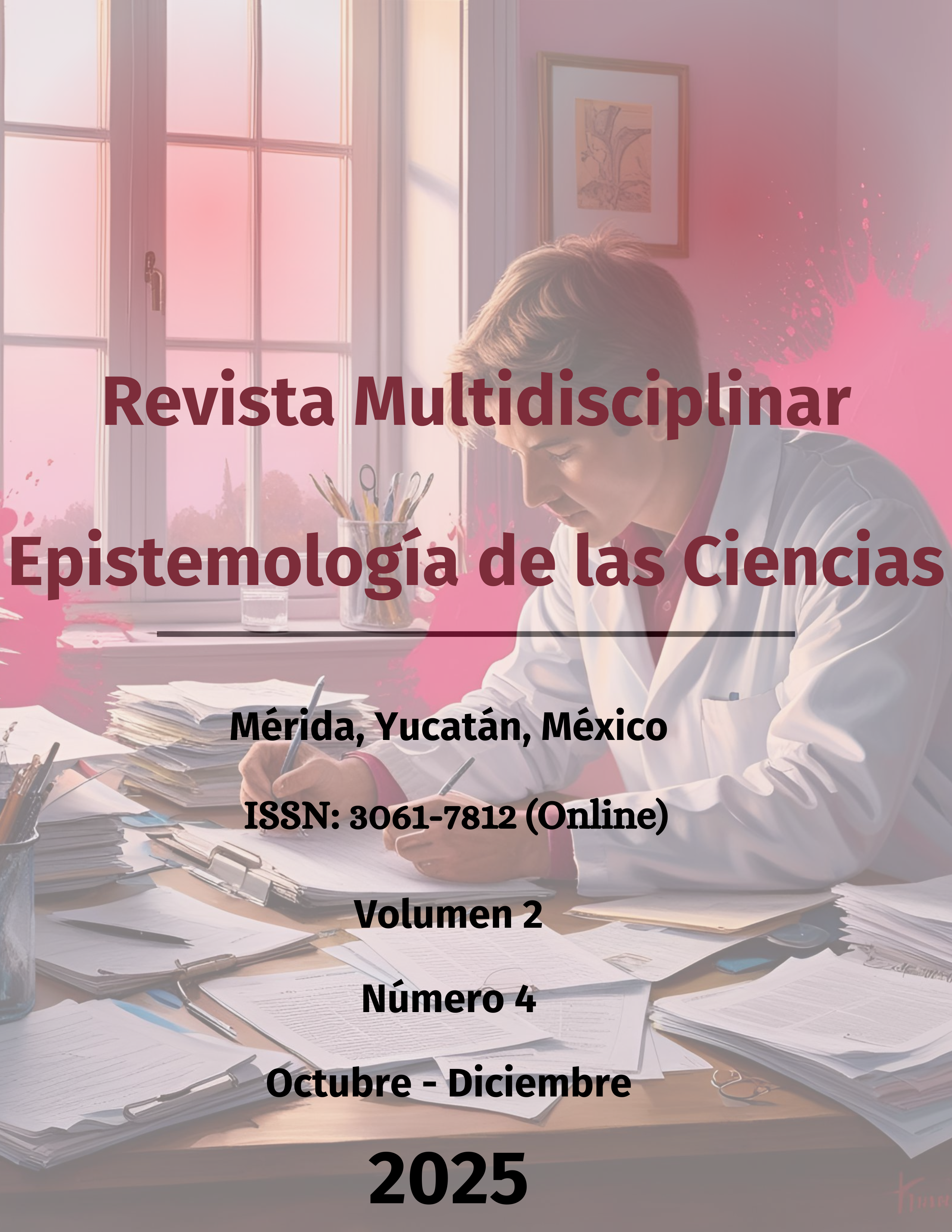Inclusion as a fundamental principle in education: psychopedagogical implications
DOI:
https://doi.org/10.71112/4xr3rj89Keywords:
Inclusive education, institutional barriers, Psychopedagogical assessment}, rural education, teacher trainingAbstract
This research analyzes the psychopedagogical implications of inclusive education in public institutions in the Charapotó parish, Sucre canton, Manabí province. Using a mixed-method approach, the perceptions of teachers and institutional stakeholders regarding the barriers and opportunities for implementing inclusive practices were explored. The results show that, although teachers are generally positive, multiple structural limitations persist that hinder effective attention to diversity. Among the main barriers are limited training in inclusive education, a lack of adapted teaching resources, weak infrastructure, and limited specialized professional support. The discussion of the findings is based on theoretical frameworks that challenge traditional models of psychopedagogical assessment and promote a vision based on human rights and equity. It concludes that inclusion in rural contexts requires profound transformations at the institutional, training, and cultural levels. The study offers recommendations aimed at strengthening teacher training and developing contextualized inclusive policies.
Downloads
References
Ainscow, M., Booth, T., & Dyson, A. (2006). Improving schools, developing inclusion. Routledge. https://ecampus.fh-potsdam.de/pluginfile.php/277655/mod_resource/content/1/Ainscow%20Booth%20Dyson%202006%20Improving%20Schools%20Developing%20Inclusion.pdf DOI: https://doi.org/10.4324/9780203967157
Arnáiz, P., & Hurtado, M. (2021). La inclusión en la escuela: ¿realidad o ficción? Revista Española de Orientación y Psicopedagogía, 32(1), 34–47. https://revistas.uned.es/index.php/reop/article/view/30740
Ary, D., Jacobs, L. C., Irvine, C. K. S., & Walker, D. A. (2018). Introduction to research in education (10th ed.). Cengage Learning.
Ato, M., López, J. J., & Benavente, A. (2013). Un sistema de clasificación de los diseños de investigación en psicología. Anales de Psicología, 29(3), 1038–1059. https://doi.org/10.6018/analesps.29.3.178511 DOI: https://doi.org/10.6018/analesps.29.3.178511
Bardales, N. (2019). La presentación de resultados en investigaciones educativas: Buenas prácticas desde la investigación cualitativa. Revista Latinoamericana de Metodología de la Investigación Social, 9(2), 45–62. https://www.clacso.org.ar/limo/index.php/limo/article/view/150
Creswell, J. W. (2014). Research design: Qualitative, quantitative, and mixed methods approaches (4th ed.). SAGE Publications.
Creswell, J. W., & Plano Clark, V. L. (2018). Designing and conducting mixed methods research (3rd ed.). SAGE Publications. https://us.sagepub.com/en-us/nam/designing-and-conducting-mixed-methods-research/book241842
Echeita, G. (2013). Inclusión y exclusión educativa. De nuevo “voz y quebranto”. Revista Iberoamericana sobre Calidad, Eficacia y Cambio en Educación (REICE), 11(2), 5–27. https://www.redalyc.org/pdf/551/55127024005.pdf DOI: https://doi.org/10.15366/reice2013.11.2.005
Echeita, G., & Calderón, I. (2014). Obstáculos a la inclusión: Cuestionando concepciones y prácticas sobre la evaluación psicopedagógica. Àmbits de Psicopedagogia i Orientació, (41), 15–30. https://www.ambitsaaf.cat/revista/index.php/ambits/article/view/41/39
Fetters, M. D., Curry, L. A., & Creswell, J. W. (2013). Achieving integration in mixed methods designs—principles and practices. Health Services Research, 48(6, Pt. 2), 2134–2156. https://doi.org/10.1111/1475-6773.12117 DOI: https://doi.org/10.1111/1475-6773.12117
Guetterman, T. C. (2015). Descriptions of sampling practices within five approaches to qualitative research in education and the health sciences. Forum: Qualitative Social Research, 16(2), Article 25. https://doi.org/10.17169/fqs-16.2.2290
Hernández-Sampieri, R., Fernández-Collado, C., & Baptista, P. (2014). Metodología de la investigación (6ª ed.). McGraw-Hill.
López, J., & Morales, D. (2022). La formación docente y su rol en la inclusión. Revista Educación y Futuro, 45, 89–102. https://dialnet.unirioja.es/servlet/articulo?codigo=7827533
Martínez, L., & García, R. (2020). Barreras para la inclusión educativa: Análisis desde la percepción docente. Revista Inclusión y Sociedad, 7(2), 25–40. https://www.redalyc.org/pdf/3382/338230794003.pdf
Miles, M. B., Huberman, A. M., & Saldaña, J. (2014). Qualitative data analysis: A methods sourcebook (3rd ed.). SAGE Publications.
Muntaner, J. J. (2018). La formación docente en educación inclusiva: Entre la utopía y la realidad. Revista Española de Pedagogía, 76(271), 369–386. https://doi.org/10.22550/REP76-2-2018-07 DOI: https://doi.org/10.22550/REP76-2-2018-07
Onwuegbuzie, A. J., & Leech, N. L. (2007). Sampling designs in qualitative research: Making the sampling process more public. The Qualitative Report, 12(2), 238–254. https://doi.org/10.46743/2160-3715/2007.1636 DOI: https://doi.org/10.46743/2160-3715/2007.1636
Rodríguez, A., & Pérez, M. (2019). Inclusión educativa: Compromisos institucionales para la equidad. Revista Iberoamericana de Educación, 79(2), 67–81. https://dialnet.unirioja.es/servlet/articulo?codigo=9988554
Sánchez, C. A., & Reyes, M. E. (2020). Diseño no experimental en la investigación educativa: Una aproximación metodológica. Revista Electrónica Educare, 24(3), 1–15. https://doi.org/10.15359/ree.24-3.9 DOI: https://doi.org/10.15359/ree.24-3.9
Sánchez, M. (2019). La inclusión educativa: Fundamentos y desafíos. Revista Electrónica Educare, 23(1), 1–20. https://doi.org/10.15359/ree.23-1.12 DOI: https://doi.org/10.15359/ree.23-2.19
Tashakkori, A., & Teddlie, C. (2010). SAGE handbook of mixed methods in social & behavioral research (2nd ed.). https://doi.org/10.4135/9781506335193 DOI: https://doi.org/10.4135/9781506335193
Tracy, S. J. (2010). Qualitative quality: Eight “big-tent” criteria for excellent qualitative research. Qualitative Inquiry, 16(10), 837–851. https://doi.org/10.1177/1077800410383121 DOI: https://doi.org/10.1177/1077800410383121
UNESCO. (1994). Declaración de Salamanca y marco de acción sobre necesidades educativas especiales: Conferencia Mundial sobre Necesidades Educativas Especiales, acceso y calidad. https://unesdoc.unesco.org/ark:/48223/pf0000098427_spa
UNESCO. (2020). Informe de seguimiento de la educación en el mundo 2020: Inclusión y educación. Todos, sin excepción. https://unesdoc.unesco.org/ark:/48223/pf0000373718_spa
UNESCO IESALC. (2021). Recomendaciones metodológicas para la investigación educativa en América Latina. https://unesdoc.unesco.org/ark:/48223/pf0000377346_spa
Zeni, J. (2009). Ethics and the “personal” in action research. En S. E. Noffke & B. Somekh (Eds.), The SAGE handbook of educational action research (pp. 254–266). SAGE Publications. https://doi.org/10.4135/9780857021021.n24 DOI: https://doi.org/10.4135/9780857021021.n24
Downloads
Published
Issue
Section
License
Copyright (c) 2025 Multidisciplinary Journal Epistemology of the Sciences

This work is licensed under a Creative Commons Attribution 4.0 International License.











